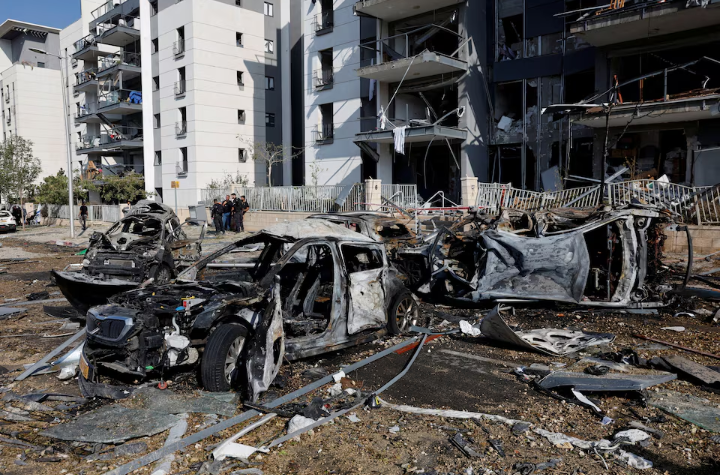TEL AVIV: Iran said on Friday it would not discuss the future of its nuclear programme while under Israeli attack, as Europe sought to draw Tehran back to the negotiating table, with a decision on potential U.S. involvement expected within two weeks.
Israel began attacking Iran last Friday, saying it aimed to prevent its longtime enemy from developing nuclear weapons. Iran retaliated with missile and drone strikes on Israel. It says its nuclear programme is peaceful.
Israeli air attacks have killed 639 people in Iran, the Human Rights Activists News Agency said. Those killed include the military’s top echelon and nuclear scientists. Israel has said at least two dozen Israeli civilians have died in Iranian missile attacks. Reuters could not independently verify the death toll from either side.
Israel has targeted nuclear sites, missile capabilities, while also hitting civilian areas, as it tries to shatter the government of Supreme Leader Ayatollah Ali Khamenei, according to Western and regional officials.
”Are we targeting the downfall of the regime? That may be a result, but it’s up to the Iranian people to rise for their freedom,” Israeli Prime Minister Benjamin Netanyahu said on Thursday.
Iran has said it is targeting military and defence-related sites in Israel, although it has also hit a hospital and other civilian sites.
Israel accused Iran on Thursday of deliberately targeting civilians through the use of cluster munitions, which disperse small bombs over a wide area. Iran’s mission to the United Nations did not immediately respond to a request for comment.
Iran’s emergency services said on Friday that five hospitals had been damaged in Israeli strikes.
With neither country backing down, the foreign ministers of Britain, France and Germany along with the European Union foreign policy chief were due to meet Iran’s Foreign Minister Abbas Araqchi in Geneva to try to de-escalate the conflict on Friday.
”Now is the time to put a stop to the grave scenes in the Middle East and prevent a regional escalation that would benefit no one,” said British Foreign Minister David Lammy.–Reuters


Comments are closed.